
M Giri Babu, a farmer-activist looks at the designs on kora
| Photo Credit: Special arrangement
The Sonthanga (meaning ‘On its Own’ in Telugu) collection takes centre stage with 67 self-designs on Kora, the raw, unbleached off-white fabric which turned weavers into designers for the first time. The collection is on display at Malkha Commons in CCT (Crafts Council of Telangana) Spaces in Hyderabad.
Ownership of skill
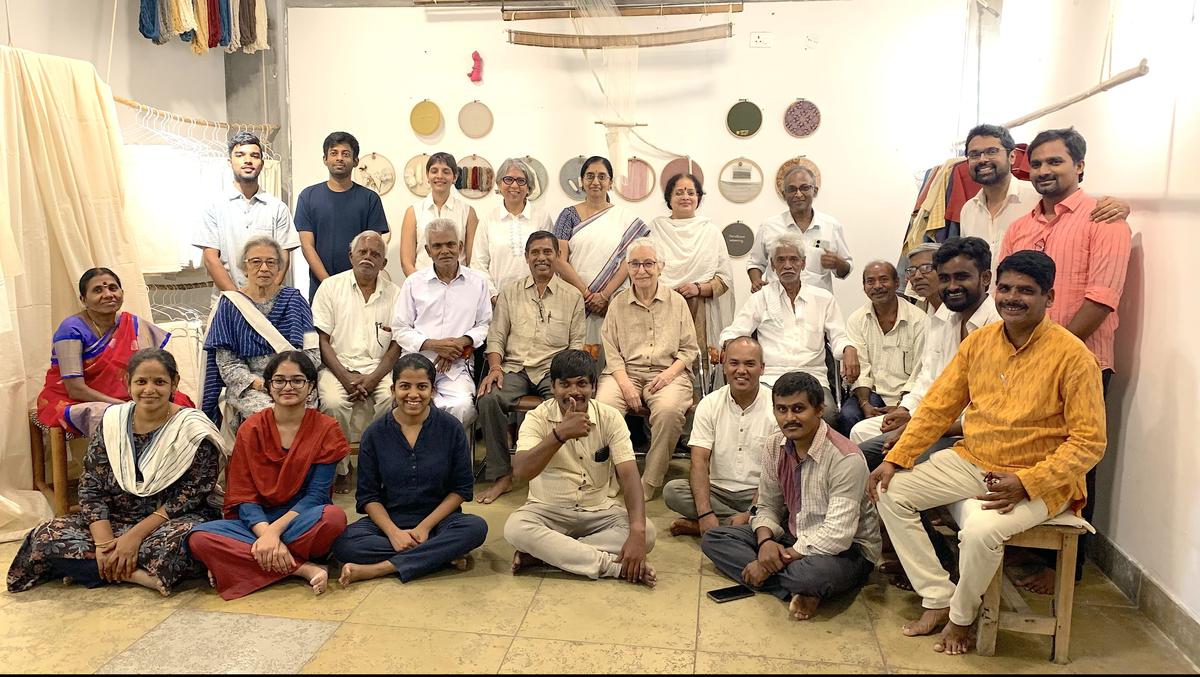
A team of farmers, weavers and spinners of Sonthanga colelction with Uzramma (seated fifth from right)
| Photo Credit:
Special arrangement
Uzramma, the founder of Malkha Marketing Trust, surrounded by a team of weavers, spinners and farmers, beams with pride. “Weavers themselves decided the designs they were going to make; each one is different and each has their name on it,” says the octogenarian. The initiative that began in 2023, she says, is to help people involved take ownership of their skill and knowledge.
Uzramma, founder Malkha Marketing Trust
| Photo Credit:
NAGARA GOPAL
The 67 designs created by 18 weavers of Thangalapalli in the Rajanna Sircilla district of Telangana are made of organic kora cotton, variety locally sourced from regenerative agricultural practices.
Endless possibilities
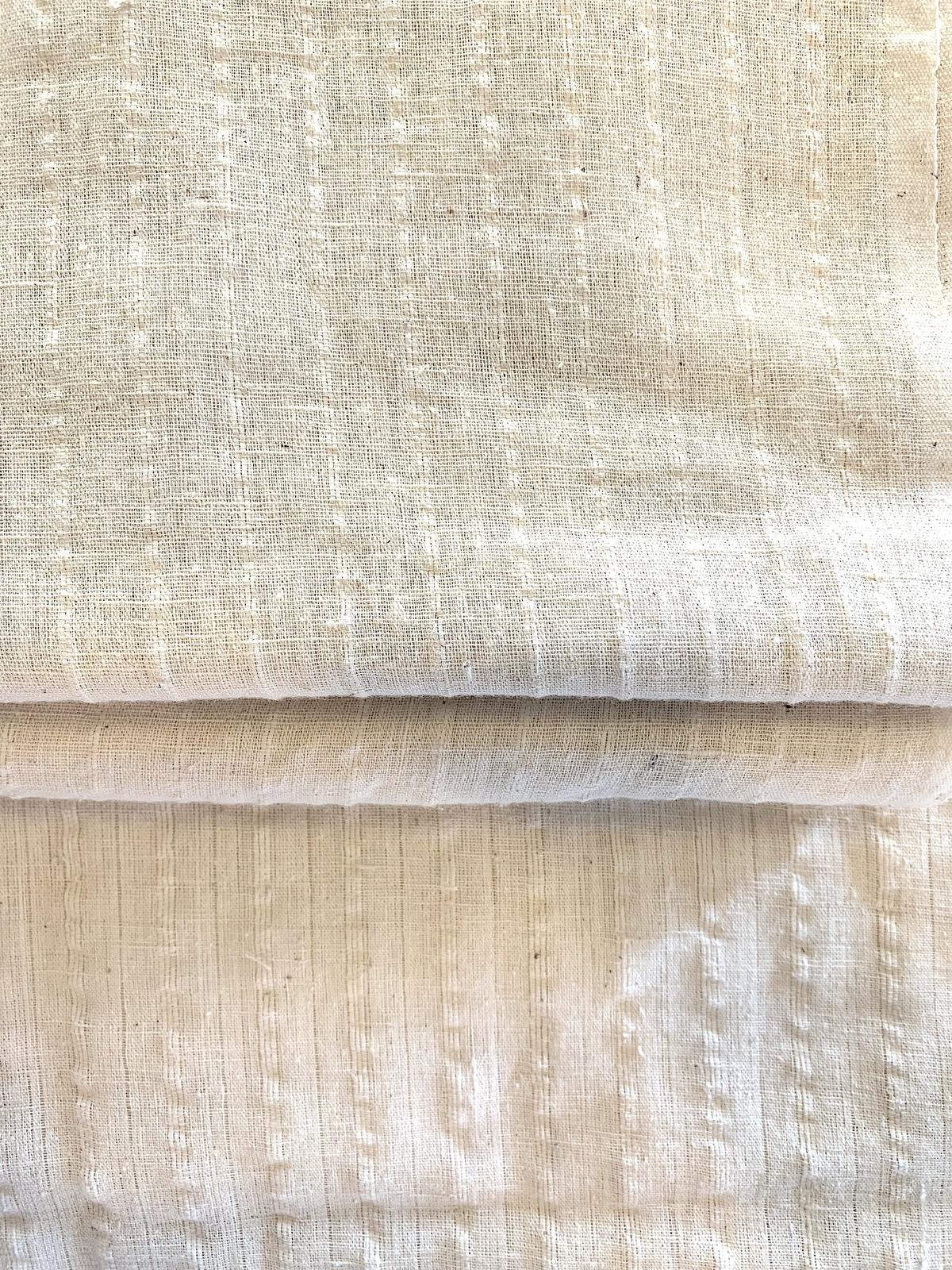
Self-designs on Kora fabric
| Photo Credit:
Special arrangement
Malkha’s success lies in the aesthetics of naturally dyed handloom cotton that is not baled and has a springy malmal and khadi texture. High-end boutiques placed bulk orders for standarised cotton to display across the country. With Sonthanga, the possibilities are endless. “Earlier we would enlist all weavers into making an order for 5,000 metres of bulk fabric; now, one particular weaver will be asked to create his own design, depending on the order.”
Inspiring weavers
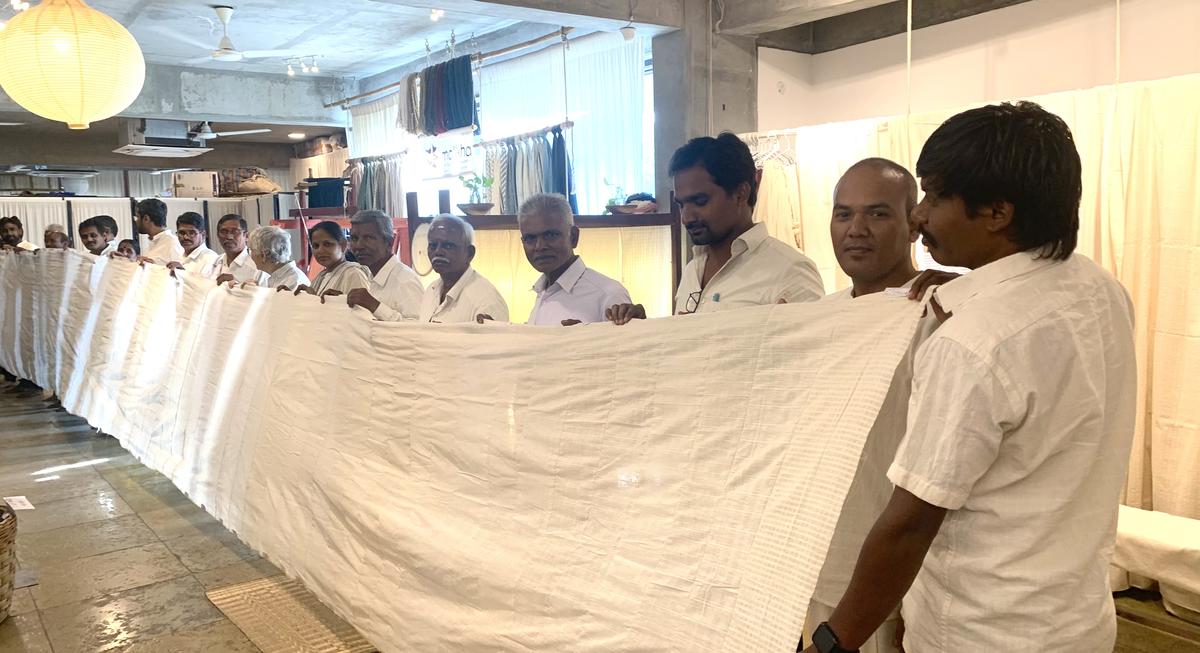
Dharmendra Vaddepalli (second from right) with weavers displaying the fabric during launch
| Photo Credit:
Special arrangement
Dharmendra Vaddepalli, one of the founders of Blue Lotus, a handloom enterprise, plays a significant role in motivating and inspiring the weavers to change their perspective. “The idea for Sonthanga emerged from Malkha Commons, started in 2022. For handloom to sustain, we need to work with people associated with it and discuss their issues. Malkha Commons works with farmers, spinners and weavers and moves ahead,” explains Dharmendra.
Sonthanga taps into the knowledge and experience of a weaver. “We left the choice of designs to weavers. We told them, ‘You have been working in the field for so many years and you know better than us which design to create.’ True to his statement, the team was pleasantly surprised with the results. “I would have probably created only seven textures on Kora but by creating so many, they have proved what wonders they can do with opportunities and a bit of support,” says Dharmendra.
The team
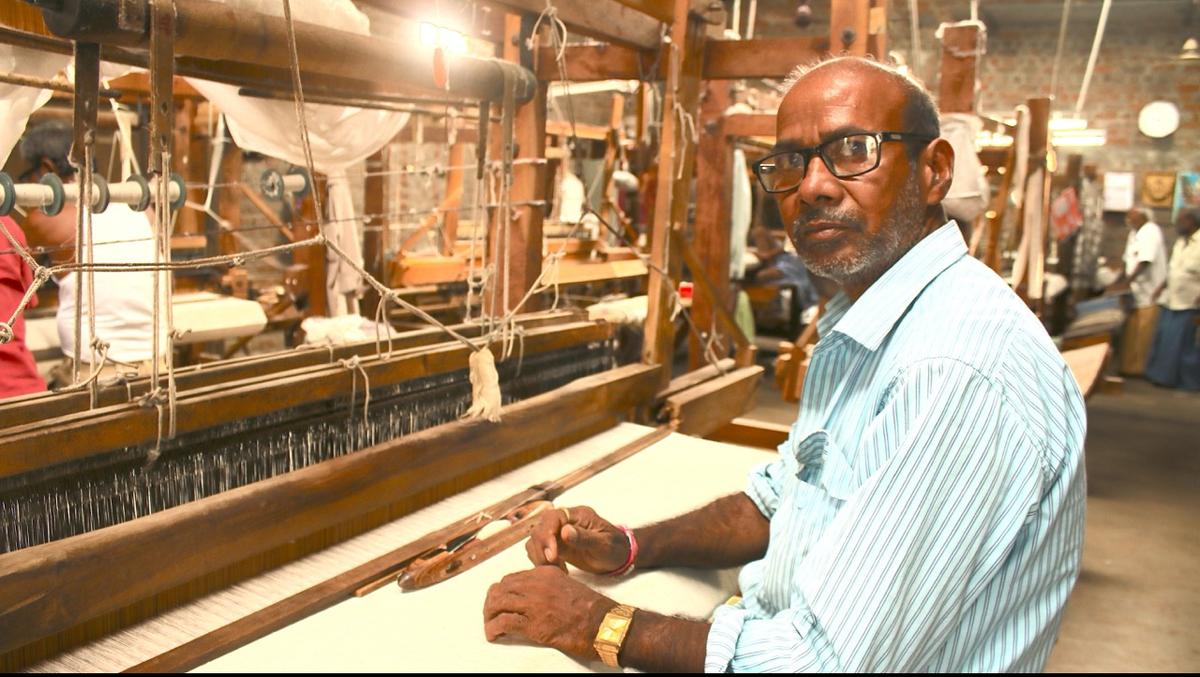
Weaver at his loom
| Photo Credit:
Special arrangement
Sixty-seven-year-old Bandari Nasayya does the warping and sizing, an important pre-loom process before weaving. Hoping to showcase the diversity of organic cotton grown locally, he used to often meet the farmers to discuss related issues. “Whenever I would get ideas, I used to make notes, I felt like a student,” he smiles.
Durga Manikanta from Uppalaguptam village in Konaseema district of Andhra Pradesh has been spinning for the past 12 years. “Spinners used to get skin allergies with Bt cotton but not with the organic cotton used in Sonthanga . We only have to save the fabric from rats,” he says with a laugh.
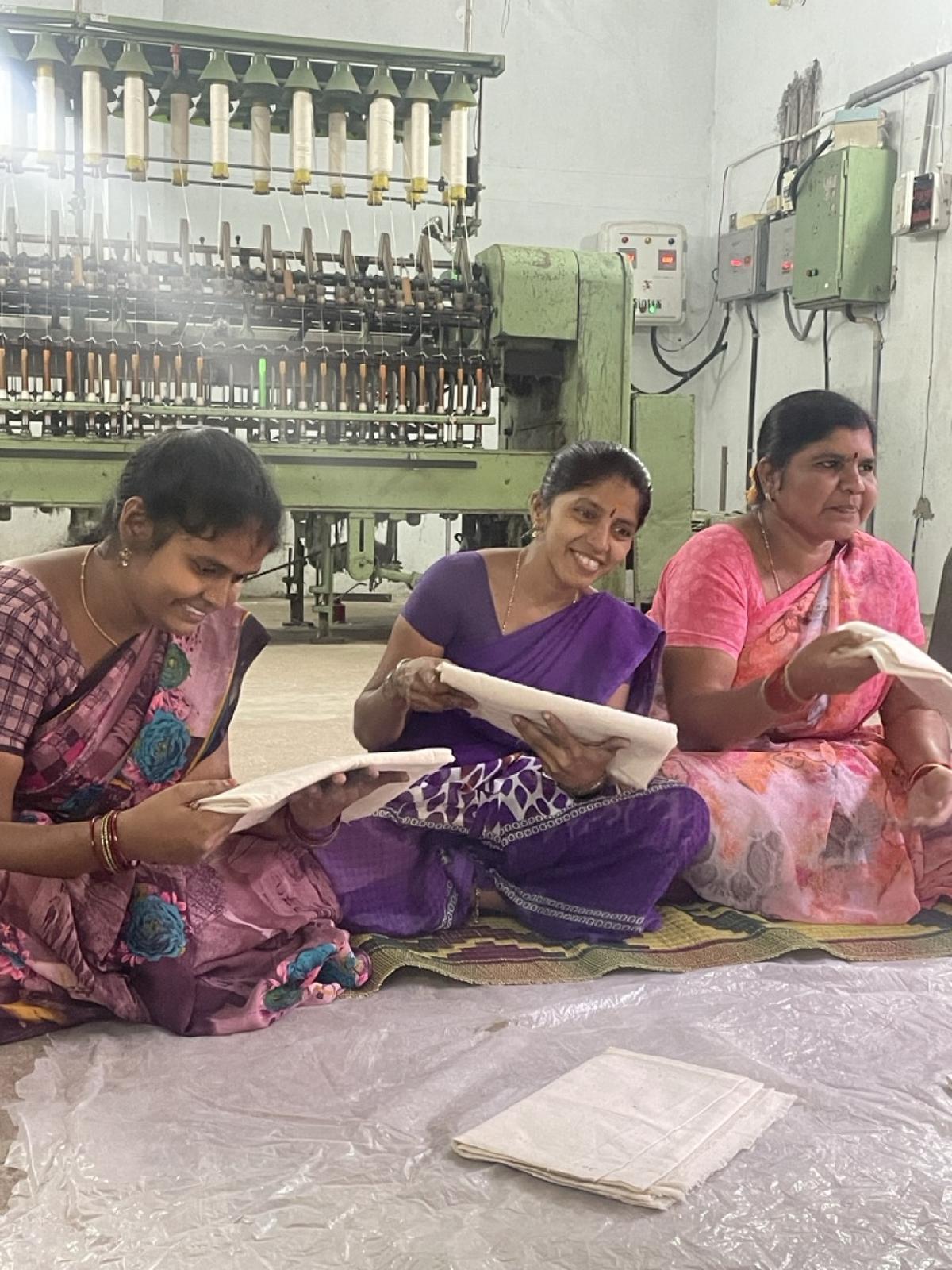
Women at a spinning unit
| Photo Credit:
special arrangement
A weaver for 20 years, Boora Dasharatham is excited to do more. “I was happy to see something in my mind shape up so beautifully,” says the 70-year-old weaver from Thangalapalli. For Konda Krishnari, Yadaarapu Balaiah and Vemula Mallesam, Sonthanga is an opportunity to test their creative abilities.
As the team proudly poses with the fabric for photographs, Uzramma says, “Sonthanga is new for us. We are still digesting it before we think of the next step.”





